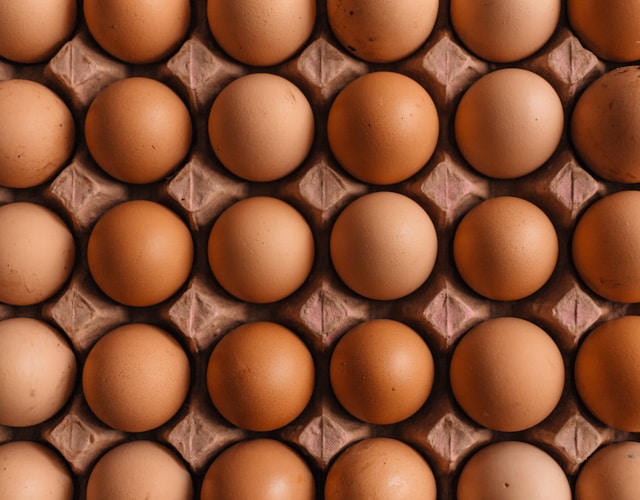
Body + Mind is reader-supported. We may earn an affiliate commission when you buy through some of the links on our site.
Adding protein to your diet should be a to-do on your checklist if you’re serious about achieving your fitness goals. It improves health and athletic performance and boosts muscle recovery after a vigorous workout. Whey protein is the go-to for health buffs. However, if you’re lactose intolerant or want to incorporate various macronutrient sources into your diet, discover these nine alternatives to whey protein.
The body has thousands of different types of protein to support organs, muscles, bones, tissues, skin, hair and overall function. Due to its broad uses, the USDA advises that 10%-35% of your daily calories come from this macronutrient.
The body can create proteins from amino acids or the ingredient molecules used to make them. Why do you still need to include them in your diet? Unfortunately, you can’t make nine essential amino acids out of the 20 kinds to build proteins. You can only obtain them by eating foods rich in these compounds.
Proteins support your metabolism, grow and repair damaged tissue, and help your body cope with the stress of an exhausting fitness activity. You can include nine alternatives to whey protein as part of your balanced diet.

According to the USDA, women should aim for 46 grams of protein daily and men should consume 56. It may be hard to meet these daily requirements if you follow a plant-based diet, which calls for supplementation. Here are the best options for vegan or vegetarian gym fanatics.
Soy products are a top choice for plant-based protein supplements. Tofu, tempeh, natto and miso are the first things that come to mind. Soy foods are as healthy as whey and have a robust nutritional profile. They contain vitamins and minerals, like magnesium, zinc, iron and calcium, and pack massive amounts of protein per serving. Try it and feel the difference in your strength and performance.
Pea protein powder is another plant-based substitute for whey. You’ll likely find three options when searching for this alternative:
A 100-calorie scoop of pea powder weighing about 27 grams contains 21 grams of protein, making it the best partner in your fitness journey.
People know rice as a carb source instead of protein. However, it’s as healthful as whey in giving your body nutrients, minus the skin rash if you’re allergic to dairy.
A cup of cooked brown rice packs 5.5 grams of protein, which is 10% of the daily value requirement of a person weighing 140 pounds. While it doesn’t contain all nine essential amino acids the body needs, it’s one of the best options if you’re looking for a plant-based substitute.
Dairy is synonymous with protein, making whey the go-to of many fitness enthusiasts. If you don’t have food restrictions but want alternatives to whey protein, here are your top choices.
Greek yogurt is an excellent post-workout breakfast or snack. It’s chock full of nutrients like selenium, calcium and B12, so including it in your after-training nutrition can benefit your body greatly.
A 7-ounce serving of low-fat variety is loaded with 20 grams of protein and 18% of your daily value needs for calcium to build strong bones and support your fitness goals. It also contains potassium, zinc, and vitamins A and B. A yogurt bowl after a challenging workout will surely invigorate your body.

Cottage cheese is your best bet if you want a protein that melts in your mouth. Chefs love its creamy, mild and hearty texture, which makes it a versatile ingredient in many dishes. To meet your daily protein requirement, add cottage cheese to pudding, spread it on toast or top it on salads.
A half cup of low-fat cottage cheese has 12 grams of protein, 5 grams of carbohydrates and only 90 calories. Like other dairy products, it can help boost bone health, develop muscles and support the gut.
This macronutrient combines 80% casein and 20% whey proteins and is sourced from skim milk powder. It’s a good option if you don’t want to completely skip whey but add another protein variety for a neutral flavor.
It’s at least 90% protein and packs 25 grams in every 30-gram scoop. Moreover, it’s a good source of branched-chain amino acids, helping the muscles recover and grow. Try it in a wholesome protein shake with fruits as a post-workout reward for your hard work.
Proteins sourced from animal products like meat, milk and cheese tend to have a higher macronutrient count. To modify your usual diet, consider these alternatives to whey protein.
Casein protein is the most popular alternative for whey since it’s also sourced from milk. Both contain all the nine essential amino acids the body needs, but the difference lies in how they’re digested. Whey is broken down and absorbed in only 20 minutes, allowing you to reap the benefits of your training faster. Meanwhile, the body processes casein more slowly — proteins are synthesized about three to four hours after ingestion.
Casein is the best option if you’re trying to lose weight. It makes you feel full longer, helping curb late-night hunger or cravings. Many love its creamy texture. Try the chocolate or vanilla flavor and see if it suits your taste.
Whole eggs are a healthy protein source, but stick to egg whites for a low-calorie diet to achieve your goal of being lean. Yolks contain 180 milligrams of cholesterol, which you may want to avoid to lower your lipid profile. Whole eggs have 4.5 grams of fat, 70 calories and 6 grams of protein.
On the other hand, egg whites have zero fat and cholesterol, pack only 20 calories and contain 4 grams of protein. Removing the yolks makes eggs healthier and more nutritionally abundant. Try it if you want to switch up your protein source.

Collagen is a form of protein found in bones, muscles, skin and tendons. The body can produce it, but aging slows the production, prompting many to turn to supplements to increase their internal nutrient levels.
Conventionally, people get collagen from fish, dairy, eggs and meat. Protein powder offers a more convenient way to access this macronutrient. When buying, choose a product with branched-chain amino acids to boost exercise performance and muscle growth. Enjoy it in your smoothie, coffee, shake and other homemade recipes.
Your muscles work hard and are torn during exercise. Incorporating these healthy protein substitutes into your diet helps with faster recovery so you’re ready for your next training session. Combine any of these plant- or animal-based options with regular activity to promote muscle growth and achieve your fitness goals.
Did you find this article helpful? Share it on X.
Your email address will only be used to send you our newsletter, and at any time you may unsubscribe. For more information, see our Privacy Policy.